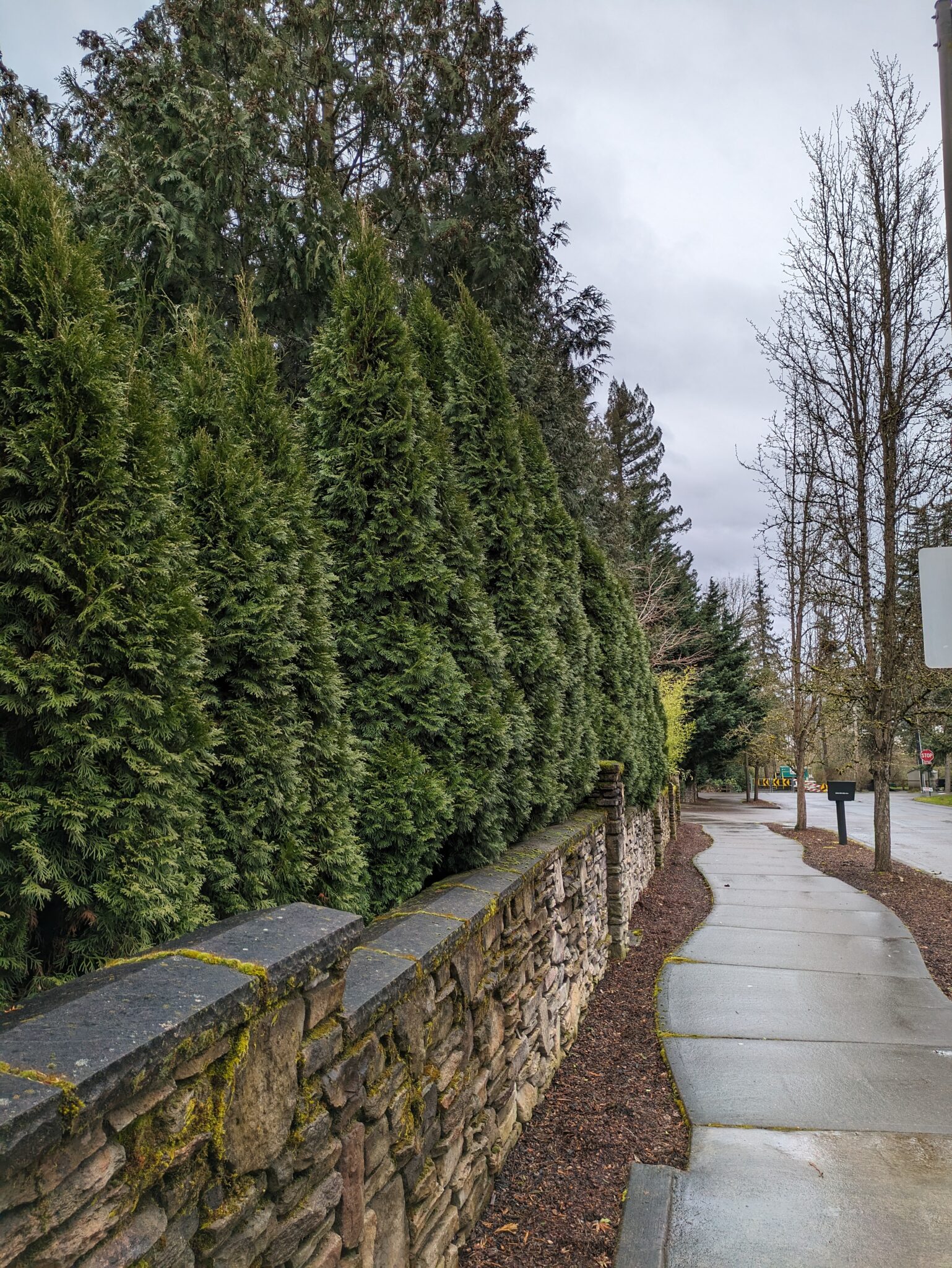
Urban Trees Reduce Noise Pollution
In an urban center, the sounds of traffic, construction, and industry can be heard at all times. 65% of Oregon’s population live in urban centers and are subject to these increased noise levels. The hard, flat surfaces of a built urban environment reflect, rather than absorb, sound waves, creating a cacophony of manmade noise that is stress inducing and potentially damaging to human hearing.
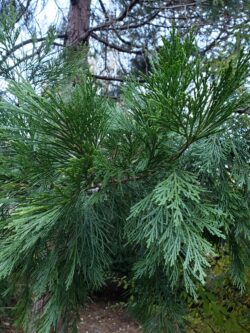
Urban trees reduce damaging noise pollution. The leaves and branches of urban trees reduce the sound intensity, or attenuate it, by absorbing, refracting, and deflecting sound wave energy. Trees can reduce the noise nearby by five to ten decibels. As the decibel scale is logarithmic, a ten decibel decrease is significant.
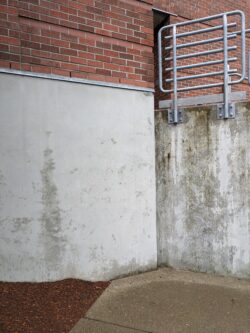
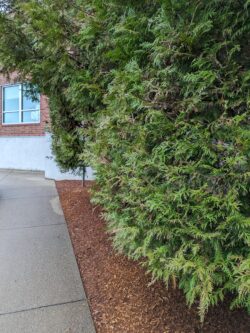
The hard, flat surfaces of the built urban environment reflect the sounds of nearby traffic, making the walkway seen above a noisy office entrance. Trees planted along the other side of the same building reduce traffic noise significantly for the office workers.
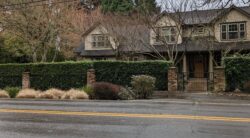
Planting site location affects the noise reduction impact of a tree. Trees planted close to the source of the noise reduce noise the most. For example, trees planted in a parking strip next to a busy road are well-placed to reduce traffic noise. The home above has a row of noise-reducing shrubs planted near the busy street. The next most effective place to plant a tree for noise reduction is near the home or office. Planting a tree halfway between a noise source and a home or office is the least effective position for noise reduction.
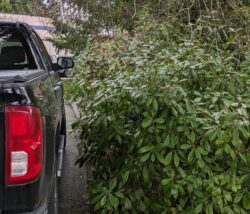
The type of tree also affects its noise reduction impact. The needles of evergreen trees reduce noise year-round, unlike their deciduous counterparts. Trees and shrubs with leaves that grow all the way to the ground, like the shrub seen above, absorb the noise of traffic better than trees with high lowermost branches. Large, dense trunks, like those of oak trees, are good at deflecting sound. Highly textured bark and leaves refract more sound.
Urban trees benefit human health by reducing noise pollution. For The Love Of Trees arborists are proud to be stewards of the noise-reducing urban forest of the Portland area.


